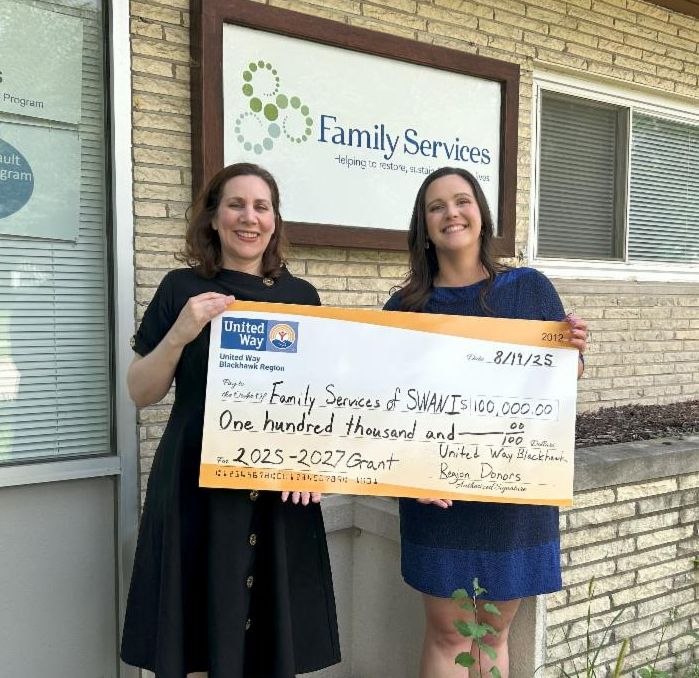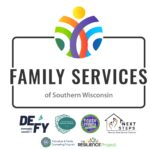
United Way Blackhawk Region Awards $100,000 Grant to Family Services of S. WI's Defy Domestic Abuse Program
BELOIT, AUGUST 20,2025 – Defy Domestic Abuse, a trauma-informed survivor advocacy program of Family Services of S. WI serving families across Rock County, is proud to announce it has received a $100,000 grant from United Way Blackhawk Region. This significant funding will bolster advocacy services for survivors of domestic violence, ensuring continued access to emergency resources, safety planning, and long-term resilience support.
“This investment from United Way Blackhawk Region affirms the community’s collective commitment to safety, dignity, and healing,” said Kelsey Hood-Christenson, President & CEO of Family Services of S. WI & N. IL, Inc. “Every dollar brings us closer to a world where survivors are met with compassion and empowered to reclaim their stories.”
Defy Domestic Abuse is dedicated to providing crisis intervention, legal advocacy, housing support, and outreach education—all rooted in equity and trauma-informed care. The program has become a lifeline for individuals navigating the aftermath of domestic violence while rebuilding their lives.
United Way Blackhawk Region awarded Defy Domestic Abuse as part of its 2025-2027 cCommunity Grant Cycle, prioritizing programs that demonstrate measurable impact and alignment with regional needs.
“Each application goes through no fewer than three tiers of volunteer review n United Way’s two-year Community Grant process. The rigorous process is designed to award funds to programs demonstrating community need, articulating program efficacy and results. The integrity of our volunteer driven Community Grant process assures donors that responsible stewardship is our top priority,” said United Way Blackhawk Region Vice President, Denise Peters-Kauihou.
The funding will directly support emergency shelter services, case management, and outreach efforts to increase awareness and accessibility throughout the county.
To learn more about Defy Domestic Abuse or to get involved, Visit www.familyservices1.org/defy.
